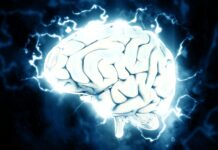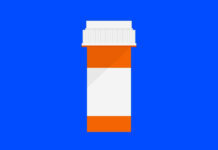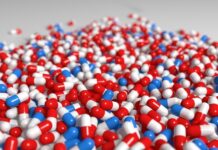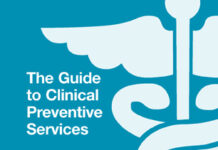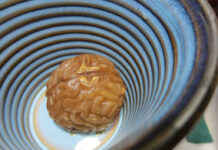Childhood Adversity May Increase Risk of Suicide
Swedish study suggests experiencing adversity in childhood is linked to dying by suicide as an adolescent or young adult.
New Review Highlights Dangers of Electroconvulsive Therapy
Data shows that over a third of users experience permanent memory loss and that approximately half report not receiving adequate information about the risks from their doctors.
Providing Trauma Informed Brief Counseling to College Students
Recommendations on how to provide trauma-informed, short-term counseling to college students who have experienced sexual assault and interpersonal violence.
Could ‘Treatment Resistance’ be an Effect of Antidepressants?
Previously taking antidepressants could make individuals less likely to respond to treatment for bipolar II depression.
New Findings Suggest Masculinity is a Risk Factor for Suicidal Thinking
Men who report being self-reliant may be at greater risk of suicidal thinking.
Added Evidence for Yoga for Major Depression
Randomized controlled trial finds yoga intervention reduces depression severity.
Physical Activity Predicts Fewer Symptoms of Depression in Children
An article published in Pediatrics is the first to examine the relationship between physical activity and depression in middle childhood (years 6 to 10) longitudinally.
A Healthier Diet Reduces Depressive Symptoms
The “Mediterranean diet” has been associated with reduced risk of depressive symptoms, and a new study demonstrates that dietary changes may be an effective treatment intervention.
‘Do Antidepressants Work?’ is the Wrong Question
“This research points to the inadequacy of asking the simple question: ‘Do antidepressants work?’ Instead, the value or otherwise of antidepressants needs to be understood in the context of the diversity of experience and the particular meaning they hold in people’s lives.”
Animal Study Supports Influence of Probiotics on Resilience to Stress
Researchers experimenting on mice found that Lactobacillus—the probiotic commonly found in yogurt—may help reduce depressive symptoms in reaction to chronic stressors. But human studies have found mixed results.
Patients More Likely to Refuse Drug-Only Treatment, Study Finds
The American Psychological Association (APA) recently published a study finding that patients assigned to drug-only treatments were more likely to refuse treatment, and more likely to drop out before treatment completion, than patients assigned to psychotherapy only.
An Alternative Perspective on Psychotherapy: It is Not a ‘Cure’
Kev Harding argues against conceptualizations of therapy as a ‘cure’ to an ‘illness’ and instead offers alternative approaches.
Collaborative Care Effective for Older Adults with Depressive Symptoms
A new study suggests that depressive symptoms in older adults can be improved with non-invasive behavioral activation techniques. These approaches appear to have a preventative effect, serving to prevent further depressive symptoms from developing.
Despite Increase in Treatments, Prevalence of Mental Health Issues Climbs
Findings show that despite increases in treatment availability, the prevalence of mental health issues has not decreased.
Experts Concerned That Depression Screening Will Lead to Overdiagnosis
Behind the U.S. task force recommendation to screen all children and adults for depression.
SMILES Study: Depression and Nutrition
The question this study asked was: In adults with depression who eat a poor diet, does teaching them about nutrition have an impact on their mental health? At the end of the 12-week intervention, the answer was: Yes.
Trials Comparing Treatments for Depression Favor Pharmacotherapy when Statisticians Involved
A meta-analysis looks at the effects of researcher background on study findings for trials comparing pharmacotherapy and psychotherapy for depression.
Neuroscience-based Treatment Program Proposed for Adolescent Depression
A study published in Frontiers in Human Neuroscience proposes a new model for the treatment of adolescents diagnosed with major depressive disorder (MDD).
Brain Scans Cannot Differentiate Between Mental Health Conditions
A new study analyzing over 21,000 participants found that differences in activation of brain regions in different psychological “disorders” may have been overestimated, and confirms that there is still no brain scan capable of diagnosing a mental health concern.
Treating Metabolic Conditions May Resolve Some Depressive Symptoms
New research suggests that treatable metabolic abnormalities underlie some treatment-resistant cases of depression—and treating the metabolic condition has the possibility of dramatically reducing depressive symptoms
Study Finds Phone Apps Effective for Reducing Mental Health Symptoms
Researchers found that participants using coach-assisted apps designed for depression and anxiety experienced symptom reductions in both conditions
Importance of Physical Symptoms in Mental Health Evals
Researchers at Harvard Medical School highlight the need for mental health clinicians to explore the meaning of physical symptoms and pain
Industry Funded Trials Favor Drugs Over Psychotherapy
The researchers conclude that industry funding appears to bias studies towards pharmacotherapy over psychotherapy for the treatment of depression.
Pets Play Central Role in Management of Mental Health Problems
Individuals with long-term mental health conditions identify pets as valuable supports in their daily lives.
Better Mental Health Care Needed for Pilots
A new study shows that airline pilots are at elevated risk for depression, yet encounter barriers to accessing mental health services.


